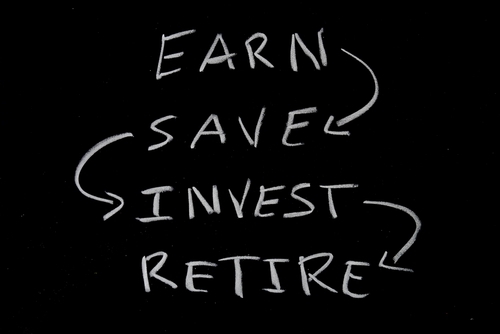Saving for retirement is one of those things people often don’t put too much thought into early in their working lives. As you get older it becomes more of a concern though. The earlier you start saving the better, so here are some tips that can help you to work out the best strategy to adopt when saving for your eventual retirement.
How early should you start saving for retirement?
As early as possible. Your retirement savings will be invested and will accumulate interest as a result. The money you save earliest in your retirement savings plan will have the longest to grow and this may help offset the fact that you will probably be earning and saving more as you get older. By starting to build your savings early you also build the habit of saving, which can make the process easier later in your working life.
What percentage of income should you save for retirement?
Fifteen percent of your weekly wage is a good amount to put aside when saving for retirement, assuming that you start saving early. Many financial advisers recommend ten percent, but this often fails to factor in things like the fact that you will probably be earning less money early in your working life. If your employer has a matching retirement savings contribution then electing to save more can also net you free money for your retirement.
How much should you save for retirement in total?
That will largely depend on the type of life you want to live after you retire. It’s also dependent on how many years you will live and need to fund your living expenses as a result. If you plan on doing a lot of expensive traveling then you will need to allow for the funds to make this happen in your savings plan. If you plan to live more modestly then you can take a more frugal approach to your saving. Work out how many years you think you will live for after retirement. Work out the yearly cost of the retirement lifestyle you want based on current day prices and then adjust this for inflation for the first year of your retirement. Do this for each year that you think you will live after you retire. This should give you a rough idea of how much to put aside when saving for retirement.
Can you depend on social security for your retirement?
It’s generally a bad plan to rely too much on governments and other third-parties for your retirement income. Good and bad governments come and go and the plan for maintaining the viability of social security is constantly changing as a result. Government funding for these plans tends to be unreliable. You should build up enough savings to ensure that you are comfortable in your retirement and only rely on social security as a last resort.
How can you simplify the process of saving and remove the temptation of spending?
Your bank probably has some features that can help you with this. Most banks can automatically deduct a certain amount or a certain percentage from each paycheck that you receive so that the money is transferred into your retirement savings before you even see it. This can also be useful if you are self-employed and want to automate the process of saving for retirement.
Your twilight years should be as comfortable and worry-free as you can make them. Retirement is your time to relax and enjoy yourself after a lifetime of working. The more you do now to make those years run smoothly the less you will have to worry about when your retirement age comes due.







